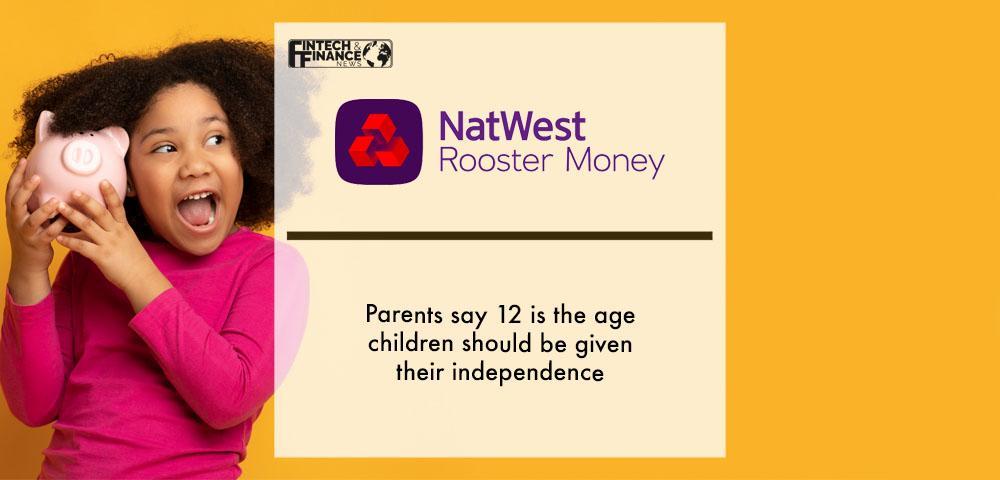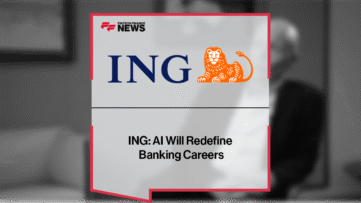Breaking News

Parents say 12 is the age children should be given their independence
Half of parents with school-aged children think kids should be given their own independence by the age of 12, according to new research from NatWest Rooster Money. However, almost a quarter (24%) aren’t emotionally ready to let go and see their child become more independent.
The poll of 750 parents and their children aged six to 16, conducted in partnership with OnePoll, shows that whilst just under a third of parents (30%) felt that their kids should have independence by the age of 10, this rose to 57% of parents who think they should have it by 12. Just 7% think their kids should wait to be 18 or older before becoming more independent.
The research also revealed which milestones mums and dads are most likely to see as signs of their youngster growing up – with the most prevalent being walking to school alone (21%), expressing their own opinions (21%), and getting ready for school by themselves (19%).
But with another school year approaching and many kids set to start secondary school, 16% of parents facing this transition are worried about ‘letting go’ and giving them more freedom. This is despite thinking that their children should be independent by the time they’re just one year into ‘big school’.
Managing money is a big sign of growing up
One in five parents reported that seeing their kids manage spending and saving their money (20%) was a big milestone on the journey to developing independence – making it one of the highest ranking signs parents point to.
Moreover, when it comes to kids developing their own financial freedom, parents suggested that the top signs of this included their child choosing how they spend and save (29%), having a spending card instead of cash (25%), and getting a part-time job (24%).
Kids had a slightly simpler perspective on financial freedom – they’re just itching to do more of what they want without supervision. Nearly a third (32%) say being able to choose what they spend their pocket money on would make them feel more free from their parents. This was ahead of getting their own mobile (24%), making their own money by selling things (28%), having a bank account (23%) and even getting a job, which just 6% cited.
The contrasting findings suggest that kids are focused on the smaller stepping stones, with more grown-up things like jobs and earning not yet on their radar, while parents see the bigger picture.
It also emerged three in 10 six- to 16-year-olds (30%) think they understand the value of money, compared to 36% of parents, who were actually slightly more likely to say the same about their children.
Parents want their kids to grow up, but they’re nervous of letting go
The study found one in five parents whose child is reaching their secondary school years are scared about them walking to school alone, although the same number consider this to be an indicator of their freedom.
The other biggest anxieties were around relinquishing control: 21% are concerned about their child handling their own money at school, 20% are hung up on who they make friends with, and 19% say they worry their child’s friends could influence them to buy things they aren’t comfortable with.
The research paints a picture of inner conflict, with a quarter (23%) saying they’re not ready for their little one to become more independent, while nearly two in five (37%) are still looking forward to helping their youngster grow up rather than letting go.
Also revealed was a belief by almost half (46%) of parents that today’s kids are becoming independent at a much younger age. Of those, 38% think it’s because they have access to more knowledge through the internet and social media, while 36% put it down to mums and dads having more open and honest conversations with them. 35% reckon modern children having more financial freedom with spending cards and child-friendly bank accounts means they are growing up quicker than previous generations.
Dr Linda Papadopoulos, a leading child behavioural psychologist, comments: “Parenting can be one of the most rewarding and challenging life experiences and one of the most fundamental aspects of parenting is to help kids become self-sufficient. That transition from depending on you completely to being able to make choices and decisions that feed into their emotional, physical and practical wellbeing is fundamental for their confidence and healthy development. As such, learning to balance our need to keep our kids safe with the equally important need of letting them challenge themselves, try new things and slowly experience independence is key.”
Will Carmichael, CEO of NatWest Rooster Money, says: “Money is such an important part of our lives as adults, so it’s essential families are empowered to help kids get to grips with it early.
“And clearly parents are on board with that, with 37% wanting to play an active role in helping their children develop their sense of independence. Our survey has also shown that creating the right framework to empower kids to get the level of freedom they want, whilst giving parents the reassurance they need, is really important – especially when it comes to these inflection points in a child’s (and parent’s!) life.
“That’s why we created NatWest Rooster Money and our prepaid Rooster Card. Parents get that reassurance they’re looking for, through limits and alerts on where their children are using it, whilst kids start to experience money, and learn the ropes around spending, saving and even earning.
“It’s about gradually letting kids take on more responsibility, to set them up for the future. Much like the transition into a new school year, and particularly the jump up to secondary, which sees little milestones like walking to school alone, having a mobile phone, or doing homework solo all build towards them becoming confidently independent.”
How do kids earn money and how do they feel about it?
Of the parents who have a 13- to 16-year-old, 46% have given their youngster even more monetary independence by allowing them to have a part-time job. Yet well under half (39%) of those in this group think their kids understand the value of money.
Although three in four parents of six- to 16-year olds currently give their child some form of pocket money, whether ‘earned’ or not. The research also revealed the things parents would be happy for their kids to spend their money on without asking, including books (31%), clothes (21%) and even sweet treats (22%).
Which is good news for youngsters, as 23% want to splash their cash on clothes without checking with mum or dad initially, as well as purchasing sweets without asking first (23%).
People In This Post
- Lüt Announces Strategic Partnership with Safe Harbor to Expand Access to Compliant Closed-Loop Payments for Cannabis and Specialty Merchants Read more
- Figure Partners with moomoo and Keplr to Expand Global Access to the On-chain Public Equity Network (OPEN) Read more
- OneDome Raises $25M Pre-Series C, Bringing Total Funding to $40M Read more
- intelliflo and Söderberg & Partners Form Strategic Partnership to Drive Adviser Efficiency Read more
- Axiology Secures €5 Million Seed Funding to Accelerate the Modernisation of Europe’s Capital Markets Read more


















